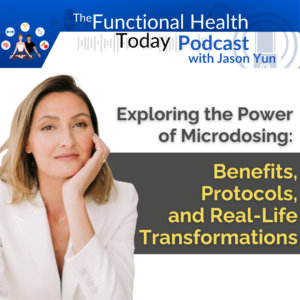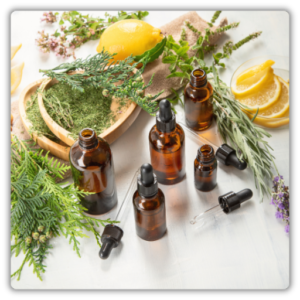
Did You Enjoy This Podcast?
Are you curious about how one experience can change your life? Join Ivan, a dedicated facilitator from Argentina, as he shares his journey into healing through psychedelics. Discover how Ayahuasca can help you better understand your past and transform your relationship with life!
Ayahuasca, a powerful brew made from the Banisteriopsis caapi vine and other plants, has been gaining attention for its potential in trauma healing and mental health issues. This plant medicine is increasingly recognized as a transformative tool for addressing deep-seated wounds, including trauma with ayahuasca. In recent years, scientific interest has shifted toward understanding its therapeutic effects, especially in addressing childhood trauma, addiction, and depression. Let’s explore how ayahuasca works and why it is drawing so many into its healing journey.
🌿 The Role of Ayahuasca in Healing Trauma
 Ayahuasca ceremonies are designed to help individuals access deep-rooted traumas that may be hard to confront in everyday life. Many people who have heard about ayahuasca are drawn to these ceremonies for personal growth and trauma recovery. Participants often report experiencing intense introspection, leading to significant emotional releases. For trauma survivors, these ceremonies can provide a space to process the effects of trauma, including feelings of disconnection and the impact of a traumatic event.
Ayahuasca ceremonies are designed to help individuals access deep-rooted traumas that may be hard to confront in everyday life. Many people who have heard about ayahuasca are drawn to these ceremonies for personal growth and trauma recovery. Participants often report experiencing intense introspection, leading to significant emotional releases. For trauma survivors, these ceremonies can provide a space to process the effects of trauma, including feelings of disconnection and the impact of a traumatic event.
Research shows that ayahuasca influences brain functioning by promoting neuroplasticity, which allows the brain to form new connections and can potentially heal old emotional wounds. Moreover, studies suggest that a sizable percentage of individuals who undergo ayahuasca treatment report decreased symptoms of depression, anxiety, and PTSD, often retrieving lost memories and reprocessing traumatic experiences. These ayahuasca experiences are transformative for those struggling with trauma, fostering conscious awareness and a sense of wholeness. This therapeutic effect is critical because traditional therapies may gloss over traumas without truly addressing their root causes.

Pop in your email below, and we’ll zip it straight to your inbox so you never lose it!
🌌 How Ayahuasca Facilitates Emotional Release
When individuals participate in ayahuasca ceremonies, they often realize early on that traditional talk therapy might not always be sufficient. As one facilitator explains, “This medicine allows access to the parts of our brains and emotions that we might not usually engage with.” These healing ceremonies offer profound healing by addressing both the emotional and psychological aspects of trauma. Participants can reconnect with their inner child—a part of us that may have been neglected or traumatized in childhood—providing a safe space for emotional processing and fostering personal growth and healing in the body and mind.
What’s crucial here is that using ayahuasca isn’t just a passive experience. Participants engage physically and emotionally in a personal journey, working through a felt sense of their experiences to achieve deep emotional release. Whether dealing with physical or emotional wounds, treating trauma with ayahuasca can help promote self-acceptance and forgiveness, both toward themselves and others. Research has shown that ayahuasca can reduce symptoms of depression, anxiety, and PTSD. A study revealed that around 90% of attendees reported significant improvements in their well-being after participating in several ayahuasca rituals, with many attributing lasting benefits to the effects of ayahuasca.
💭 Facilitators: The Key to Safe Healing

A supportive facilitator is essential during ayahuasca sessions, particularly in healing retreats where participants seek trauma release and profound transformation. The facilitator’s role is to create a safe environment, guiding participants through their psychedelic experiences while being attuned to emotional states and potential crises. Methods like ayahuasca healing can often achieve in a single session what might take years of therapy with traditional medicine. Without this guidance, participants may find it challenging to navigate the complex layers of their psyches, leading to feelings of being overwhelmed or lost in the process.
Studies highlight the lengths facilitators usually go to in order to foster a healing atmosphere, emphasizing their training in both therapeutic methods and the specific needs of those journeying through their traumas. These healing practices are integral to trauma therapy, ensuring that the experiences may truly help heal the participants on their path to recovery.
❤️ The Lasting Impact of Ayahuasca on Mental Health
The engagement with ayahuasca is not only about confronting and healing trauma; it also fosters a profound sense of interconnectedness—among participants, their past experiences, and their future selves. Many express feeling more alive and aware after their sessions, having shed layers of emotional pain and self-doubt.
In summary, ayahuasca serves as a promising tool for those seeking genuine emotional healing. It combines ancient wisdom with the modern understanding of mental health, effectively addressing deeply rooted issues that have troubled many for years. As interest grows, so too does the potential for effective treatment for a wide range of mental health challenges.
Did You Enjoy This Podcast?
Are you curious about how one experience can change your life? Join Ivan, a dedicated facilitator from Argentina, as he shares his journey into healing through psychedelics. Discover how Ayahuasca can help you better understand your past and transform your relationship with life!














